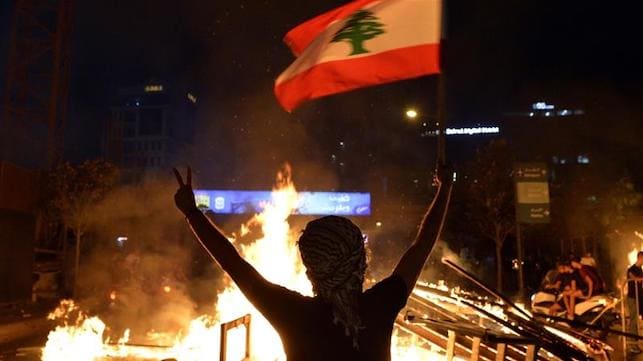I have mixed feelings about the two days of anger in Lebanon. I will not call it “revolt” or “revolution”, “anger” is a best description.
People have been living for long, and more so during the last two months, in a state of continuous stress and anxiety.
They got used to living in a country where electricity and water are scarce. They managed to find private solutions. Building generator or illegal private providers of electricity in each neighborhood. Illegal private companies who sell cisterns for all use water. Expensive bottled drinking water.
The result is that, for years, they are paying two electricity bills and three water payments, one for official utilities, one buying water cisterns, and one buying bottled water.
They got used to paying the price in pollution and quality of life. Generators churn fumes in the air and water is salty and often unsafe to drink.
On top of it, subsidizing electricity (sic) is costing the country 25% of the country’s debt on yearly basis. A bizarre occurrence: electricity is subsidized while the private person pays two electricity bills that amount to the most expensive electricity per kilowatt in the whole world!
They got used to a cloud of bad smell enveloping the capital since the garbage crisis started 5 years ago.
They got used to a traffic situation that is so complex that you cannot move around without grinding your teeth.
They got used to unjustified price hikes in most consumables, food products, and ‘luxuries’.
They got used to waiting ages for website loading and sudden 5 minutes cuts in connectivity. In short, they got used to a slow, unreliable, and very expensive internet connection.
They got used to the most expensive mobile phone rates in addition to being unreliable.
They got used to so many governmental services failing, tried to find private solutions being entrepreneurs, to the cost of increasing dramatically their cost of life.
Suddenly, and a year ago, they started being bombarded by politicians and the sensationalist media of warning of a country going bankrupt. Reforms are badly needed. Then, the reform plans started to becoming actions to balance the budget through the levying of indiscriminate taxes rather than cutting spending in a public sector that became a hungry ogre eating all taxes and government income.
Two months ago, the campaign was hyped and exchange rates became unstable. The level of anxiety increased and reached dangerous levels. Then came the news of a tax on WhatsApp use. Free communication was a breathing space for young people. It was the drop that topped the vase of despair.
An explosion of anger was the result.
Young people took to the streets, families and older people followed them, disturbers and anarchists followed.
What is encouraging is that those who took to the street came from all religions and sects. What is remarkable and hopeful is that the Shia civil society joined the protest and took to the streets for a first time since long out of the control of Hezbollah and Amal. This could be a return to the unity and secular national identity the country witnessed on 14th of March 2005.
What is worrying is that the movement is clearly and until now a protest movement without focus or leadership. A factor that might undermine its continuity or ability to drive real change.
What is more worrying is that if the movement disturbs the status quo without leading to solutions, it might drive the country who is on the edge to economic chaos.
Lebanon is wobbling on the edge of hope and hopelessness. I am afraid.
khatoun.haidar@gmail.com

